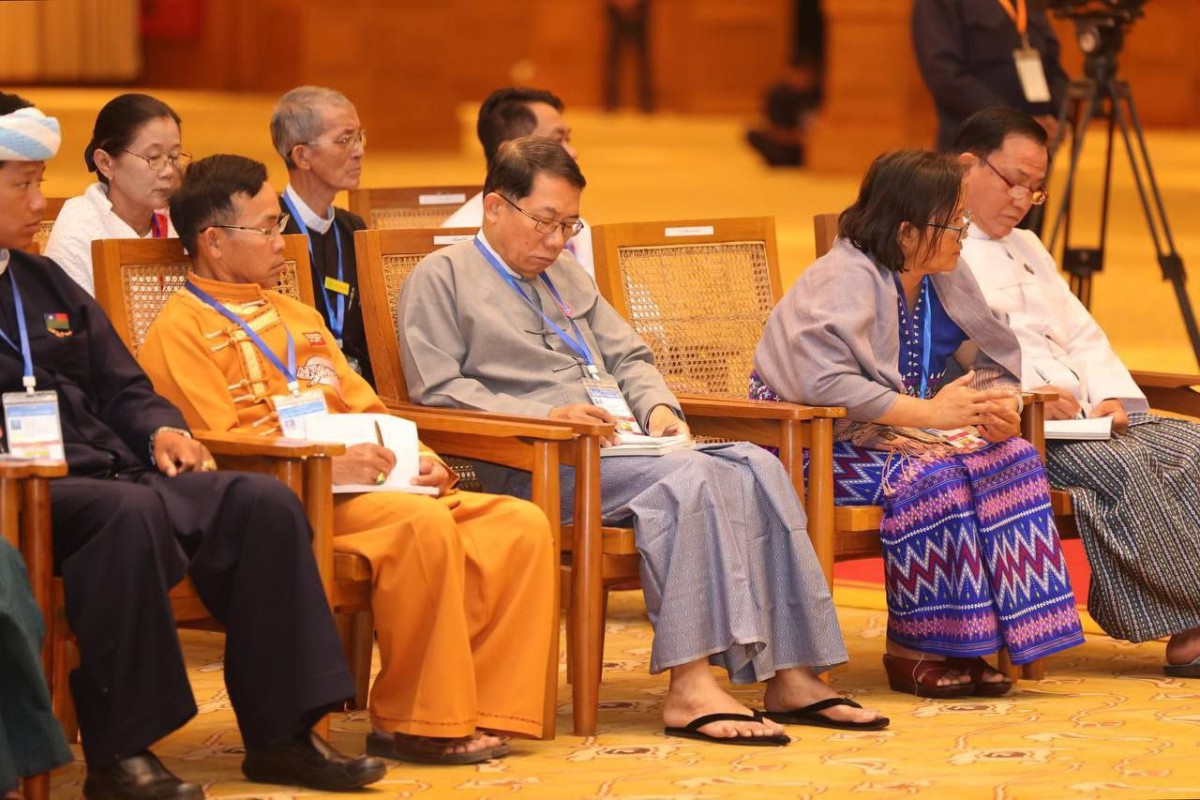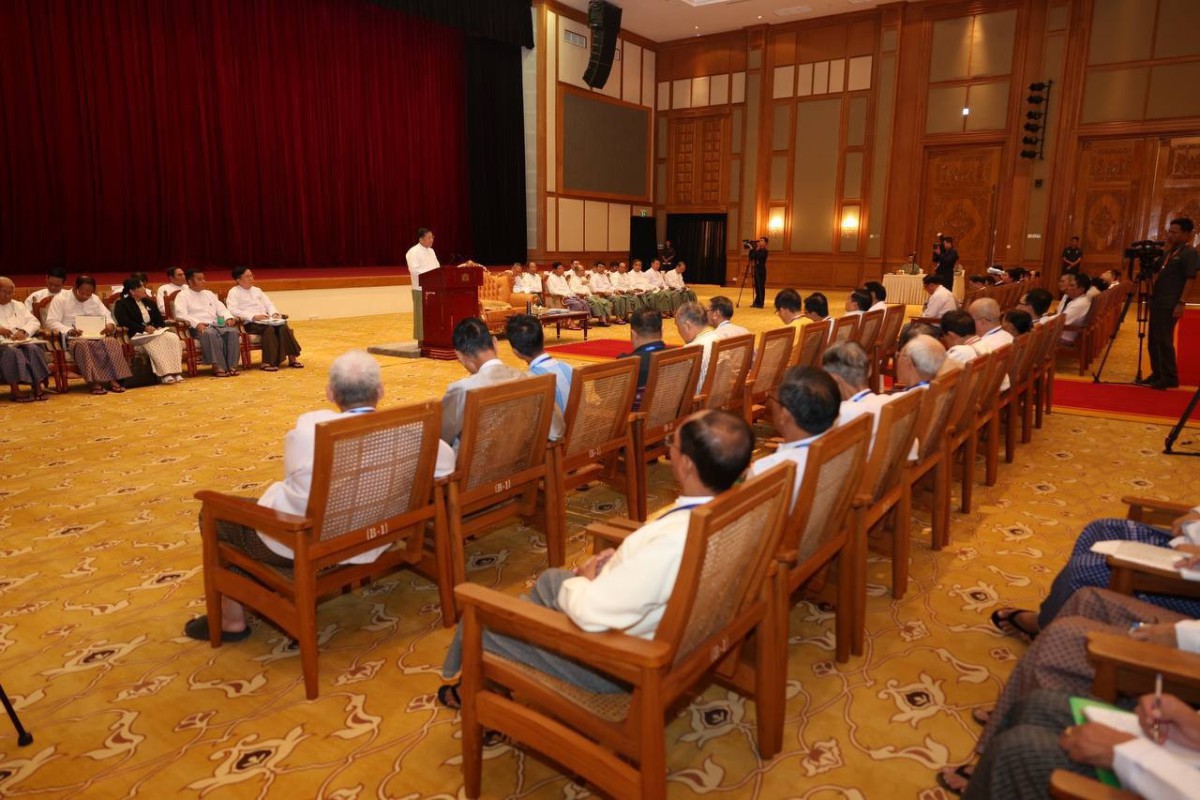CNI News
9 September 2025
Among the political parties planning to compete in Myanmar’s upcoming general election, those contesting nationwide may face more difficulties than parties contesting only within a single state or region, said Dr. Aye Maung, Chairman of the Arakan Front Party (AFP).
Parties competing only within one state or region are required to have 1,000 members and to open five party offices in five townships within that state or region. In contrast, parties that contest nationwide must have 50,000 members, establish 110 offices, and field candidates in more than half of all constituencies.
Although nationwide parties may face serious challenges, state- or region-based parties are unlikely to be heavily affected in this election, Dr. Aye Maung told CNI News.
“State/region-based parties must, according to the Political Parties Registration Law, recruit more than 1,000 members and open offices in five townships. If they fail to open five offices, their registration will be canceled under the law. However, if they field a candidate in just one constituency, they can avoid dissolution. That’s why state/region-based parties are unlikely to be much harmed in this election. Nationwide parties, on the other hand, face very serious difficulties. For example, they must have at least 100,000 members and open offices in 110 townships. If they fail to meet these requirements by December 6, they will face dissolution. Likewise, if they fail to field candidates in more than half of the 833 constituencies—over 400 seats—they could also be deregistered as a political party. These are the kinds of challenges they face.”, he said.

Dr. Aye Maung with political parties
According to the Political Parties Registration Law, parties must fulfill the required membership and party office criteria and submit proof to the Union Election Commission (UEC) by September 7, as announced by the UEC on August 20.
Under Section 12(a) of the Political Parties Registration Law, if a party is found unable to recruit the required number of members as set out in Section 5(c), or to open the required number of party offices as set out in Section 5(g), it may lose its right to continue existing as a political party.
Furthermore, Section 12(b) stipulates that if a party is found in violation of Section 12(a), the Commission must revoke its registration and dissolve the party.
Meanwhile, revolutionary forces and pro-democracy activists have announced that they will attempt to disrupt and prevent the December 28, 2025 election and will take strong action against those participating.
As a result, political parties and their candidates are worried about security and about whether people will not even come out to vote.

Political parties meeting with Senior General Min Aung Hlaing
Dr. Aye Maung told CNI News that, considering the inclusion of votes from internally displaced persons (IDPs), the election could still proceed, with reliance on security forces for protection.
“Especially in Manaung, Kyaukphyu, and Sittwe, where voting will take place simultaneously on December 28, stability can be maintained. In Rakhine, if the votes of IDPs now living in Yangon are counted together with those from the three constituencies outside of the 14 townships currently under AA administration, the election could be deemed complete. As a party, we believe for now that each of us must take responsibility for our own security—first personally, second for our organizations. After that, under the law, protection will depend on the security forces. That’s how we expect to get through this election.”, he said.
The Union Election Commission has announced that Phase 1 of Myanmar’s election will take place on December 28, 2025.
On July 29, 2025, Senior General Min Aung Hlaing enacted the Election Security Law, which prescribes a minimum 10-year prison sentence up to life imprisonment or even the death penalty for anyone who disrupts, destroys, sabotages, or causes deaths related to the election.




